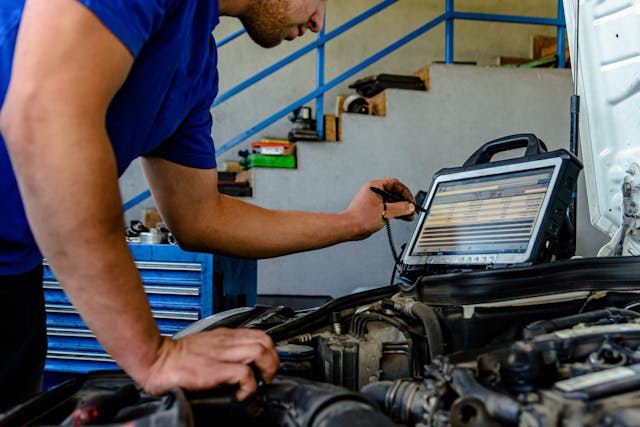NHTSA now backs Massachusetts right-to-repair legislation
The National Highway Traffic Safety Administration, after forbidding auto manufacturers to comply with a Massachusetts state law that allows independent repair shops to access vehicle data that dealers are able to access to help them repair vehicles, has done an about-face and told automakers to prepare to let independent shops into the loop.
In other words, the state’s “right to repair” legislation will soon be a practical reality. The ruling also paves the way for future state and federal legislation.
While Massachusetts requires automakers to comply, NHTSA stopped the process from moving forward due to the fear that hackers might be able to use the information to “remotely command vehicles to operate dangerously,” such as disabling brakes or steering.
But after researching the issue, NHTSA now says that it’s safe to share that information with independent shops, so long as it is accomplished using “short-range wireless technology.”

NHTSA’s concerns regarding the Massachusetts Data Access Law “arise from the risk associated with the ability to, at scale, remotely access and send commands that affect a vehicle’s critical safety systems,” NHTSA said in a letter to the Massachusetts Attorney General.
“NHTSA strongly supports the right to repair. We are pleased to have worked with you to identify a way that the Massachusetts Data Access Law may be successfully implemented—promoting consumers’ ability to choose independent or do-it-yourself repairs—without compromising safety. We write to confirm our mutual understanding of that path forward,” the letter said.
NHTSA isn’t saying that it is impossible to access information that would be used to hack a vehicle’s safety system, only that the risk is very low when using up-close sharing of that information.
Next up: Manufacturers must be given a “reasonable” amount of time to figure out how this sharing process will work. With 22 manufacturers involved, that process is likely to come sooner with some manufacturers than others.
According to the Public Interest Research Group, right to repair legislation includes not just personal vehicles but a vast variety of products, from medical devices to tractors. Right to Repair legislation has passed in Massachusetts (in 2012 and 2020), Colorado (2022 and 2023), New York and Minnesota. Many other states are still moving forward. So far in 2023, 30 states have introduced legislation, some involving personal vehicles, some not.
***
Check out the Hagerty Media homepage so you don’t miss a single story, or better yet, bookmark it. To get our best stories delivered right to your inbox, subscribe to our newsletters.



It’s a start. Still got more to go on this issue.
“Manufacturers must be given a “reasonable” amount of time to figure out how this sharing process will work. With 22 manufacturers involved, that process is likely to come sooner with some manufacturers than others.”
Massachusettes gave them quite a bit of time to figure this out before the law went into effect. They chose to sit on their hands, knowing they had NHTSA in their pocket. When it started to become clear the NHTSA had no authority to override Massachusettes, they started back peddling, and the manufacturers started claiming they need more time now.
The notion that new car dealerships, which are the most consistently dishonest businesses most of us will encounter in our daily lives, can be trusted with critical vehicle data, but independent shops cannot, is laughable. Kudos to NHTSA for seeing the light and reversing direction.
Yay! Next, farm vehicles…
wdb, I couldn’t agree more. This, too, is a huge issue!
Well goliee gee. Where do I buy one of them there cars “that hackers might be able to use the information to remotely command”. I gotta git me one of those. Seriously, do people really buy cars like this or am I the only one that sees a problem here even if it is only”remotely” possible.